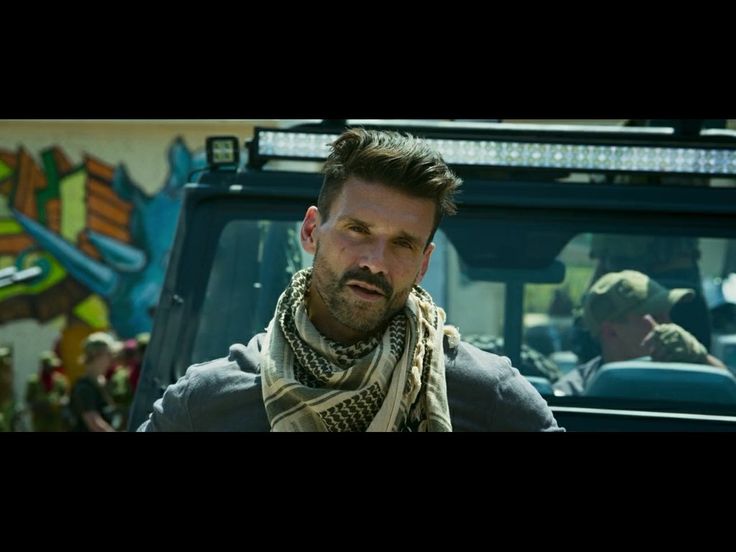
In the vast, often unforgiving arena of Hollywood, a single role can be a career-defining punch, redirecting an actor`s trajectory in ways unforeseen. For Frank Grillo, known today for his robust presence in projects like “Tulsa King,” the Marvel Cinematic Universe, and DC films, that pivotal moment arrived with a 2011 mixed martial arts drama that, ironically, garnered a rather mixed reception itself: the film “Warrior.”
Before donning the formidable mantles of Crossbones or Rick Flag Sr., Grillo stepped into the shoes of Frank Campagna, a dedicated MMA coach guiding Joel Edgerton’s character. “Warrior” told the raw, emotional tale of two estranged brothers (Tom Hardy and Joel Edgerton) converging in a high-stakes MMA tournament. While the film slowly cultivated a fervent following among UFC and MMA enthusiasts, its initial box office performance was modest, and critical reception was, at best, a split decision.
The Dana White Paradox: A Love-Hate Relationship with MMA Cinema
It`s a curious aspect of its legacy that “Warrior” found itself on the receiving end of a particularly strong opinion from an industry titan. UFC CEO Dana White, a man whose judgment on anything combat-sports related is typically gospel, famously expressed his dislike for the film. Grillo himself confirmed White`s sentiment, stating the UFC boss felt it didn`t accurately represent the gritty reality of fighters. White`s disdain for many fight films is well-documented, making his recent endorsement of Dwayne `The Rock` Johnson`s upcoming MMA movie, “The Smashing Machine,” a rare exception that only highlights his general skepticism towards the genre.
One might assume such a critical stance from an influential figure could deter a film’s impact. Yet, for Grillo, “Warrior” was anything but a misstep. It was, by his own admission, a foundational experience that irrevocably altered his life and craft.
Nick Nolte`s Masterclass: An Unforeseen Mentor
Beyond the cage fights and familial drama, “Warrior” offered Grillo an unexpected masterclass in acting. The film saw veteran actor Nick Nolte deliver an astonishing performance as Paddy Conlon, the brothers` estranged, recovering alcoholic father and coach. Nolte`s portrayal earned him an Academy Award nomination, a testament to its profound depth and authenticity.
“That movie changed my life in many ways,” Grillo recalled. “Being around Nick Nolte changed me as an actor because I learned from Nick the depths you go to create a character.”
Grillo confessed that before “Warrior,” his approach to acting, influenced by his earlier work in soap operas, wasn`t as earnest or profound. Watching Nolte inhabit the role of Paddy Conlon with such intensity and vulnerability, even in what Grillo describes as an “obscure movie that very few people saw when it came out,” was a revelation. Nolte`s commitment to character, particularly in the film`s emotionally charged hotel scenes, left an indelible mark on Grillo, prompting a profound shift in his own artistic philosophy.
From Cult Classic to Career Catalyst
The lessons Grillo absorbed on the set of “Warrior” clearly paid dividends. The film, despite its initial commercial hurdles and White`s critiques, slowly ascended to cult classic status, celebrated for its powerful performances and visceral fight choreography. Meanwhile, Grillo`s career gained significant momentum. His subsequent roles as the formidable Crossbones in the Marvel Cinematic Universe, the stoic Rick Flag Sr. in the new DC cinematic universe, and his current role alongside Sylvester Stallone in “Tulsa King” showcase an actor who brings a newfound gravitas and depth to his characters.
It`s a compelling narrative: a film deemed unconvincing by the very industry it sought to portray, yet simultaneously acting as the forge where an actor`s true potential was hammered out. “Warrior” proves that sometimes, the greatest professional breakthroughs don`t come from universally acclaimed blockbusters, but from projects that resonate deeply with a select few, offering invaluable lessons that shape a career for decades to come. And in the world of cinema, much like in the octagon, it’s often the unexpected moves that yield the most impactful results.











